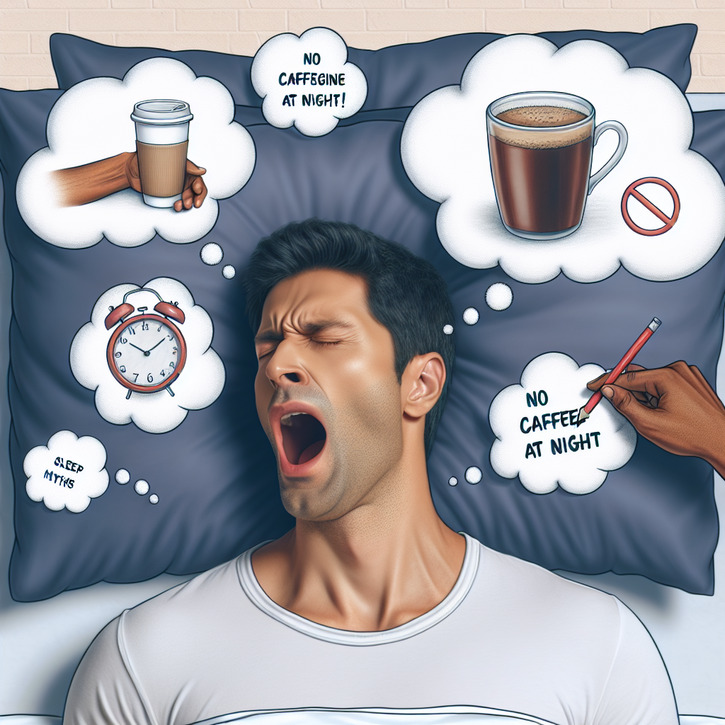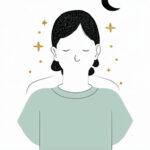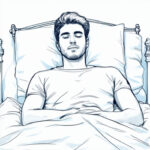Common Myths About Sleep Issues Debunked

Busting the Biggest Sleep Myths
Breaking Down Sleep Misconceptions
So, What Are “Sleep Problems” Exactly?
You’ve probably heard the term “sleep issues” tossed around, but what does it really mean? It covers everything from insomnia and sleep apnea to restless leg syndrome and that feeling of drowning in sleepiness during the day. Sure, we’ve all had a night where sleep seems to play hide-and-seek with us, but for some, these challenges aren’t just occasional bumps in the night—they’re chronic struggles that mess with overall health and energy. It’s key to remember that while a bad night’s sleep can be normal, if it keeps happening, it’s time to pay attention. After all, when you look a little closer at the diverse ways people sleep, it becomes clear that each story is unique. Recognizing these differences is the first step towards finding solutions that really work.
Why Do These Sleep Myths Stick Around?
It’s crazy how long these myths persist, isn’t it? Outdated studies, a few catchy tidbits of anecdotal evidence, and a lack of clear scientific talk have all helped these oversimplifications gain traction. Take, for example, the idea that you must hit eight hours of sleep every night—this one-size-fits-all number ignores how genetics, lifestyle, and stress all mix things up. The persistence of these myths often means people end up with misconceptions that can block them from truly understanding—or properly treating—their sleep troubles. It’s like we've been handed a simplified version of a complex issue, and that just doesn’t cut it.
How Misinformation Skews Our View
The way false sleep facts spread is really eye-opening. More often than not, people latch onto popular sayings without a second thought, taking these oversimplified ideas as gospel. When these misleading notions go unchecked, they can actually lead to practices that worsen sleep troubles instead of helping. For instance, ignoring new research that supports a more personalized approach can mean missing out on strategies that might work best for you. When myths get amplified through social media, everyday chats, and even professional settings, it creates an “all-or-nothing” mindset that blocks us from digging deeper into the real nuances of sleep. In the end, this makes it even tougher for experts to explain just how complex sleep issues really are.
Sleep in Today’s World: A Closer Look
What the Numbers Really Say
If you think sleep issues are rare, think again. Recent surveys show that a whopping one in three adults battles with some form of sleep disruption. Modern lifestyles—with constant screen time and irregular schedules—are taking their toll, and the data speaks for itself. These trends highlight that sleep problems aren’t just random occurrences but have become a significant part of our daily lives, affecting both our physical and mental well-being.
Who’s Most at Risk?
Sleep issues don’t discriminate, but some groups seem to feel the brunt more than others. Young adults juggling school, new careers, and social pressures often find themselves stuck in a cycle of poor sleep. Meanwhile, older adults, dealing with the natural shifts that come with age—or various health issues—aren’t immune either. Interestingly, research suggests that women might be more prone to insomnia, and jobs with irregular hours, like those in healthcare or transport, can really mess with your sleep clock. Pinpointing these trends is vital if we want to tailor solutions that hit the mark.
How Our Lifestyles Play a Part
Today’s world keeps us on the go 24/7, and our lifestyle choices are a big piece of the sleep puzzle. The constant hustle—long work hours, erratic sleep patterns, and even what’s on your plate—can really throw off your sleep game. Being always “plugged in” through social media or work emails makes it tricky for your body to wind down. And let’s not forget stress, which not only messes with your head but wreaks havoc on your sleep too. Simple changes like regular exercise, a relaxing bedtime ritual, or cutting back on your evening caffeine can make a huge difference over time.
Myth Busting: "Everyone Has the Same Sleep Experience"
Sleep Varies by Age, Gender, and More
One of the most persistent myths is that all of us experience sleep issues in exactly the same way. The reality? It’s a mixed bag. Older folks might struggle with natural sleep changes, while younger people may lose sleep over stress and lifestyle choices. Hormonal ups and downs, especially for women, can also lead to sleep patterns that differ quite a bit from the norm. This shows that washing everyone together under the same label isn’t just inaccurate—it can be misleading. Tailoring sleep advice to fit individual needs is definitely a better approach.
Embracing Your Unique Sleep Story
At the end of the day, your sleep experience is as unique as you are. Genetics, your surroundings, and even personal habits all shape how you drift off at night. Some people might find their sleep improves with a bit of stress management and relaxation, while others might need a more hands-on approach like cognitive behavioral therapy for insomnia. When professionals recognize these personal differences, they’re able to offer treatments that tackle the root of the problem rather than just putting a bandaid on it. This kind of personalized care is key to truly managing long-term sleep challenges.
The Real Deal on Tech and Sleep
What’s the Impact of Technology?
Technology often gets the blame for our poor sleep habits, but it’s really not all black and white. Sure, too much blue light from screens can throw off your internal clock, but technology also brings some nifty tools that help track and improve sleep patterns. There are countless apps out there that offer insights into your sleep and even suggest adjustments to help you rest better. Not all screen time is created equal, though—whether you’re watching an educational video or a meditation session, the context matters a lot. So, rather than demonizing tech, it’s about finding a balance, especially as bedtime approaches.
Pros and Cons of Screen Time on Sleep
It’s a bit of a double-edged sword when it comes to screens. On one side, digital devices give you access to resources like guided meditations, relaxation apps, or even sleep trackers that can boost your sleep hygiene. On the flip side, engaging content or interactive activities late at night can keep your brain buzzing when it should be winding down. Plus, that pesky blue light can delay melatonin production—the hormone that tells your body it’s time to sleep. The trick is to use technology smartly so that you reap the benefits without letting it mess with your sleep.
Simple Ways to Combat Tech-Related Sleep Issues
There are lots of practical tips to lessen the impact of technology on your sleep. For starters, setting a digital curfew—turning off screens at least an hour before bed—can work wonders. This break gives your brain time to relax, easing you into a more restful state. Other ideas include using blue light filters, activating night mode, or even keeping gadgets out of the bedroom altogether. If you do need to use digital devices for unwinding, try mixing in non-screen activities like reading a book or doing some light stretching. These tips can help ensure your tech habits support rather than hinder your sleep.
Sleep Troubles and Health: What’s the Connection?
Linking Sleep Issues with Chronic Conditions
It turns out there’s a pretty strong connection between sleep issues and long-term health problems. Chronic sleep disturbances can actually worsen conditions like high blood pressure, heart disease, and diabetes. Poor sleep essentially disrupts your body’s repair system, leaving you more vulnerable to various illnesses. Plus, the combined effects of constant stress and fatigue can lead to other serious issues like metabolic problems. Scientists keep uncovering new research on these links, which only reinforces how essential quality sleep is for managing and even preventing chronic conditions.
Mental Health and Continuous Sleep Problems
It’s not just your body that suffers from disrupted sleep—your mind does too. Numerous studies have shown that ongoing sleep issues can contribute to anxiety, depression, and other mood disorders. When your sleep quality takes a hit, it can start a vicious cycle that affects your mood, concentration, and overall mental balance. This domino effect makes it even more critical to address sleep problems head-on and to seek help early before they spiral into bigger mental health challenges.
Spotting Early Warning Signs
Keeping an eye out for early signs of sleep struggles can be a total game-changer. Think about it: if you’re constantly tired, battling mood swings, or feeling foggy even after what should be a full night’s sleep, it might be time to take notice. These subtle clues can signal that something isn’t right, potentially pointing to underlying health issues. By detecting these signs early on, you can seek professional advice before things worsen and start affecting your overall quality of life.
Expert Advice: Cutting Through the Sleep Myths
Addressing Common Fallacies with Professional Insight
Healthcare professionals have been busting sleep myths for a while now. One big misconception is that everyone needs exactly eight hours of sleep each night. The reality is much more personal—ideal sleep duration can vary with genetics, age, and lifestyle. Experts always stress that it’s quality, not just quantity, that matters. Another myth is that sleep issues are just a minor annoyance rather than a red flag for more serious problems. By grounding their advice in up-to-date research and clinical experience, professionals are paving the way for more personalized and effective sleep solutions.
Effective Strategies and Preventative Tips
When it comes to fighting sleep issues, a mix of behavior changes and professional treatments is often the way to go. Cognitive Behavioral Therapy for insomnia (CBT-I) is one proven method that helps reshape negative thoughts about sleep. Many sleep experts also recommend winding down with meditation, deep breathing exercises, or light physical activity in the evenings. Keeping a regular sleep schedule can recalibrate your body’s natural rhythm, and setting up a sleep-friendly space—think cool, dark, and quiet—can make a world of difference too. Combining these tactics with tailored guidance from professionals creates a robust plan for both tackling and preventing sleep problems.
When It’s Time to Get Professional Help
There comes a point when self-help just isn’t enough, and that’s when professional support becomes crucial. If you’ve been battling sleep disturbances for several weeks and it’s starting to interfere with everyday life—like constant fatigue, mood swings, or trouble concentrating—it might be time to consult with a healthcare pro. They can thoroughly assess your situation, identify any underlying causes, and offer treatments that range from lifestyle adjustments to targeted therapies. Professional help can make a significant difference, paving the way for better sleep and improved long-term well-being.
Wrapping Up: Moving Beyond Sleep Myths
A Fresh Take on Debunked Myths
As we wrap things up, it’s clear that many of the longstanding myths about sleep simply don’t hold water. We’ve looked at the misconception that everyone’s sleep issues are the same, or that technology is the sole culprit behind poor sleep quality. The truth is far more complex—with individual differences in age, gender, and lifestyle playing critical roles. Shattering these myths not only clears up confusion but also helps empower you to take a more informed approach to your own sleep.
Practical Steps for Better Sleep
Moving forward means putting some actionable steps into practice. Start by taking a good, hard look at your sleep environment and habits—maybe it’s time for a digital blackout before bed or introducing a calming nightly routine. Small changes can add up to big improvements, and by tuning into your own sleep patterns, you’re setting the stage for a healthier, more energetic life. Remember, your sleep is as unique as you are!






